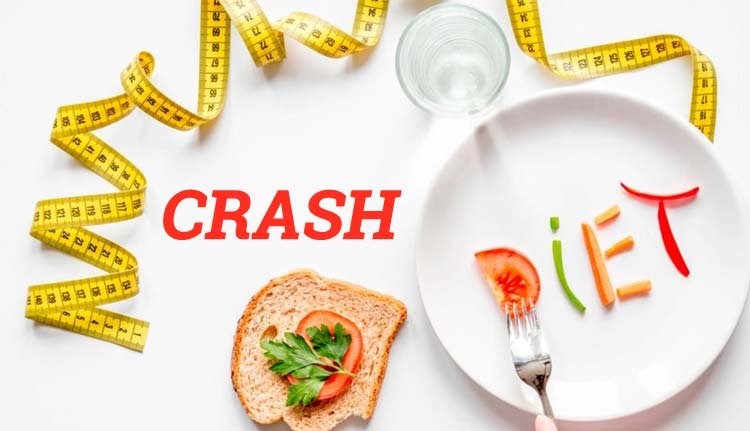Rapid Results: The Need for Speed in Losing Belly Fat Unveiled

- Posted by
 Prachi Shah
Prachi Shah
Introduction:
In a world obsessed with instant gratification, the pursuit of a toned and trim midsection has become a quest for rapid results. Many individuals find themselves on a relentless mission to shed belly fat swiftly, spurred by the desire for a slimmer waistline and improved health. In this blog, we will explore the need for speed in losing belly fat, examining both the benefits and potential pitfalls of pursuing rapid results.
Why there is a need for speed in losing belly fat
Before delving into the need for rapid results, it’s crucial to understand the health implications of excess belly fat. Belly fat, scientifically known as visceral fat, poses significant health risks. Unlike subcutaneous fat, which lies just beneath the skin, visceral fat surrounds internal organs and releases inflammatory substances that can negatively impact health. It’s not just a cosmetic concern; excess abdominal fat is associated with an increased risk of heart disease, type 2 diabetes, inflammation and other metabolic disorders. The urgency to lose belly fat quickly is, therefore, not merely a matter of aesthetics but also a pursuit of overall well-being.
Benefits of rapid results

- Motivational boost: One of the undeniable advantages of rapid results is the motivational boost it provides. Seeing tangible progress within a short time frame can ignite a sense of accomplishment, fueling the individual’s commitment to their fitness journey. Rapid changes serve as a powerful motivator to continue positive habits and reinforce the importance of a healthier lifestyle.
- Improved health markers: Swift reduction in belly fat often correlates with rapid improvements in health markers. Individuals may experience positive changes in cholesterol levels, blood pressure, and insulin sensitivity, contributing to an overall reduction in the risk of chronic diseases. These immediate health benefits can be a driving force for those seeking quick improvements in their well-being.
- Enhanced confidence: A visible reduction in belly fat translates to a noticeable change in physical appearance, leading to enhanced confidence. This boost in self-esteem can have a positive ripple effect on mental well-being and overall quality of life. Feeling good about one’s body can empower individuals to take charge of their health and make lasting lifestyle changes.
Potential pitfalls of rapid results
Unsustainable practices: The pursuit of rapid results often tempts individuals into adopting extreme and unsustainable practices. Crash diets, extreme calorie restrictions, or excessive exercise may lead to quick initial results but are challenging to maintain in the long run. The danger lies in the rebound effect, where individuals regain lost weight and potentially more once they revert to normal eating habits.
Disadvantages of crash dieting:

- Muscle loss: Crash diets often lead to a rapid loss of both fat and muscle mass. The body, in a state of extreme calorie deficit, starts breaking down muscle tissue for energy. This can result in a decrease in metabolic rate, making it more challenging to maintain weight loss in the long term.
- Nutrient deficiency: Crash diets typically lack the necessary variety and quantity of nutrients essential for the body’s proper functioning. Inadequate intake of vitamins, minerals, and other micronutrients can lead to deficiencies, negatively impacting overall health. Common deficiencies include those of iron, calcium, vitamin D, and B vitamins.
- Slow metabolism: Extreme calorie restriction signals to the body that it is in a state of famine, prompting a metabolic slowdown. The body becomes more efficient in conserving energy, making it harder to burn calories and lose weight. This adaptive response can persist even after returning to a normal diet, contributing to post-diet weight gain.
- Nutrient imbalance: Crash diets often lack the balance of macronutrients (proteins, carbohydrates, and fats) required for optimal health. For instance, some crash diets may severely limit carbohydrates or fats, disregarding their essential roles in energy production, hormonal regulation, and overall well-being.
- Energy deprivation: Drastically reducing calorie intake can result in low energy levels, fatigue, and irritability. Individuals on crash diets may find it challenging to sustain their daily activities, let alone engage in regular exercise, which is crucial for overall health and weight management.
- Risk of gall stones: Rapid weight loss, as commonly seen in crash diets, increases the risk of developing gallstones. The liver releases extra cholesterol into the bile, and the gallbladder may not empty properly, leading to the formation of gallstones, which can cause abdominal pain and other complications.
- Psychological impact: Crash dieting can have a significant psychological toll. The restrictive nature of these diets may lead to feelings of deprivation, guilt, and frustration. Moreover, the cycle of rapid weight loss followed by regain can contribute to a negative relationship with food and body image.
- Fluid loss and dehydration: Initial weight loss in crash diets often includes significant fluid loss rather than fat loss. Dehydration can occur due to reduced water intake and the elimination of carbohydrates, which retain water in the body. This can result in electrolyte imbalances and negatively impact various bodily functions.
- Weakened immune system: Inadequate nutrition from crash diets can compromise the immune system’s function, making the body more susceptible to infections and illnesses. The body needs a balanced intake of nutrients to maintain proper immune function and overall health.
- Hair loss: Your hair relies on you to feed it from within with a good diet including plenty of protein, healthy fats and vitamins and minerals such as vitamins C and E, biotin, selenium and zinc. A crash diet is likely to leave you lacking in these hair-nourishing nutrients, and hair loss
- Hormonal changes: Losing too much weight too quickly can prevent your menstruation from beginning or postpone puberty. This may have an impact on your hormone levels and make it more challenging to conceive later in life.
- Irregular bowel movements: Crash diets often focus on severely restricting overall food intake, which may result in a significant reduction in dietary fiber. Fiber is essential for maintaining regular bowel movements as it adds bulk to the stool and promotes healthy digestion. A lack of fiber can lead to constipation or irregular bowel habits. Dehydration can cause the stool to become harder and more difficult to pass, resulting in constipation. The composition of the gut microbiota also plays a crucial role in digestion and overall gut health. Sudden changes in diet can alter the balance of bacteria in the gut, potentially leading to digestive issues and irregular bowel movements.
Striking a Balance
While the urgency to lose belly fat quickly is understandable, it is crucial to strike a balance between rapid results and sustainable practices. The key is to combine effective strategies for fat loss with long-term lifestyle changes that promote overall health and well-being.
- Balanced nutrition: Focus on a well-rounded, nutrient-dense diet that includes a mix of lean proteins, whole grains, fruits, and vegetables. Avoid extreme calorie restrictions that may lead to nutrient deficiencies. Opt for a sustainable approach that provides the body with the necessary nutrients for optimal functioning
- Effective exercise: Combine cardiovascular exercises with strength training to maximize fat loss while preserving lean muscle mass. High-intensity interval training (HIIT) is a time-efficient way to burn calories and boost metabolism. Tailor your exercise routine to be challenging yet sustainable over the long term.
- Consistent lifestyle changes: Implement consistent lifestyle changes that promote long-term health. Prioritize adequate sleep, stress management, and hydration to support overall well-being. These factors play a crucial role in weight management and contribute to a holistic approach to health.
Conclusion:
The need for speed in losing belly fat is driven by both aesthetic aspirations and genuine concerns for health. While rapid results can be motivating and beneficial, it is essential to approach the journey with a balanced perspective. By combining effective strategies for fat loss with sustainable lifestyle changes, individuals can achieve the dual goals of quick results and lasting well-being.
Remember, the key lies not just in shedding pounds swiftly but in adopting a holistic approach that promotes a healthy, active, and fulfilling lifestyle. Striking a balance between the desire for rapid results and the need for sustainable practices is the key to unlocking a healthier and more vibrant future.


